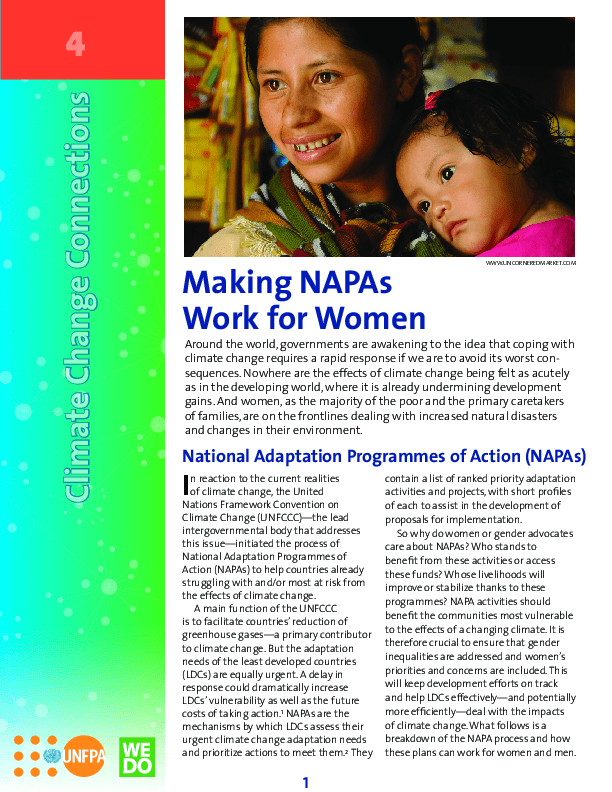In reaction to the current realities of climate change, the United Nations Framework Convention on Climate Change (UNFCCC)—the lead intergovernmental body that addresses this issue—initiated the process of National Adaptation Programmes of Action (NAPAs) to help countries already struggling with and/or most at risk from the effects of climate change. A main function of the UNFCCC is to facilitate countries’ reduction of greenhouse gases—a primary contributor to climate change. But the adaptation needs of the least developed countries (LDCs) are equally urgent. A delay in response could dramatically increase LDCs’ vulnerability as well as the future costs of taking action.1 NAPAs are the mechanisms by which LDCs assess their urgent climate change adaptation needs and prioritize actions to meet them.2 They contain a list of ranked priority adaptation activities and projects, with short profiles of each to assist in the development of proposals for implementation.


